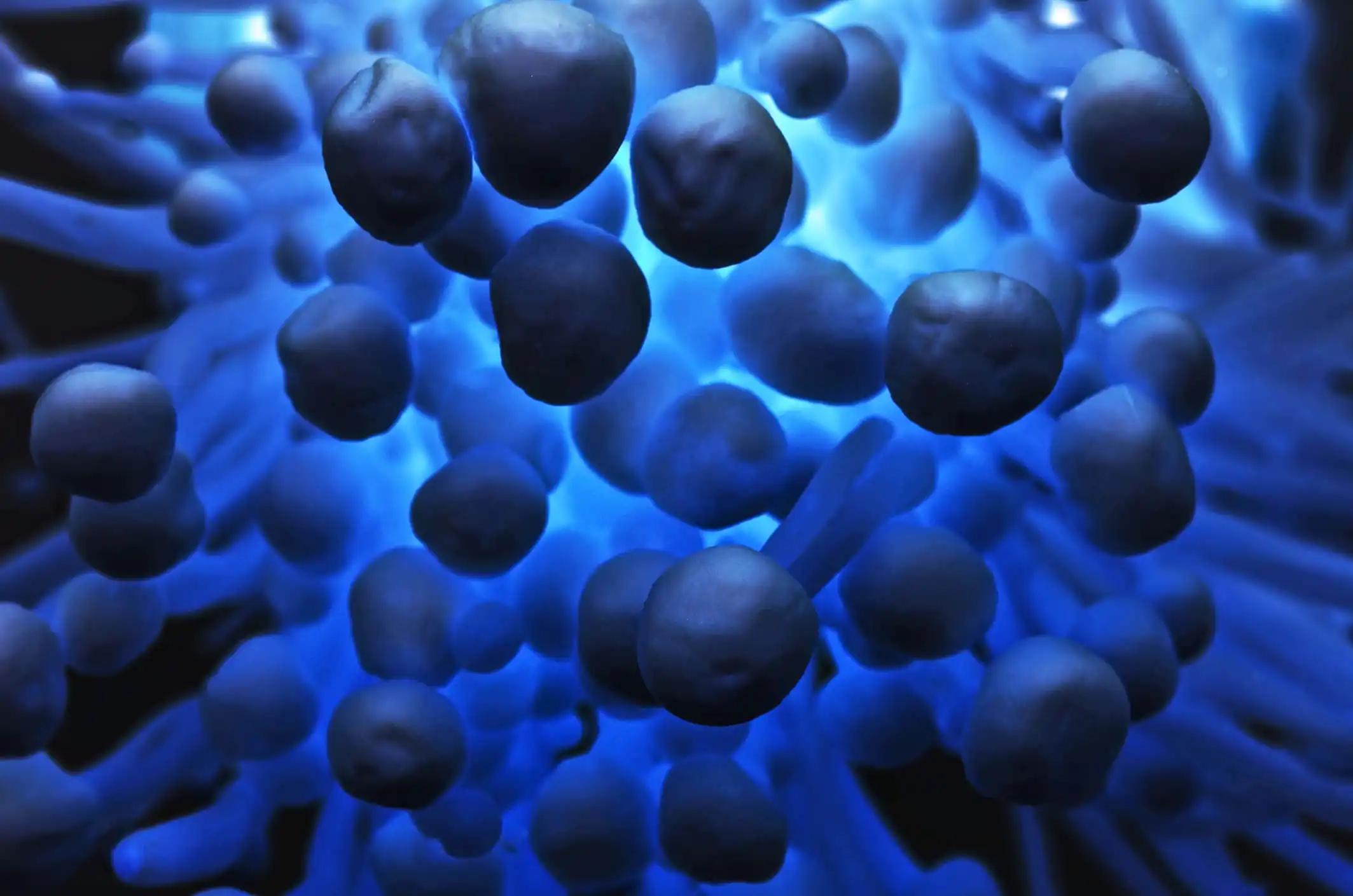KEY TAKEAWAYS
- The study aimed to investigate the impact of B cell subpopulations on the GC TIME and immunotherapy response.
- Researchers found that B cell and GC cell interactions impact immunotherapy effectiveness; targeting CCL28-CCR10 may help.
While immunotherapy shows promise for advanced gastric cancer (AGC), not all patients benefit equally.
Xing Cai and the team aimed to investigate the role of B cell subpopulations in the GC tumor immune microenvironment (TIME) and their influence on immunotherapy response.
Researchers re-analyzed publicly available single-cell RNA (scRNA) and spatial transcriptomics (ST) datasets to characterize B cell subpopulations and differentiation trajectories within the GC TIME. ST and multiple immunofluorescence (mIF) were used to assess B cell and tumor cell colocalization.
Immunotherapy datasets facilitated the identification of unique immunotherapy biomarkers. A mouse GC model validated the therapeutic potential of targeting CCL28, and flow cytometry analysis revealed changes in the tumor immune microenvironment upon CCL28 targeting.
Analysis of ST data across various cancer types revealed a co-localization pattern between B cells and tumor cells. The GC TIME exhibited a significant presence of IgA plasma cells.
The study identified 5 distinct tumor-infiltrating B cell subpopulations, 2 unique B cell differentiation trajectories, and 7 GC-related states. Notably, tumor cells influenced and recruited plasma cells through CCL28-CCR10 signalling, indicating crosstalk between GC cells and B cells.
Further analysis of immunotherapy data pointed to the LAMA/CD44 signalling axis as a potential prognostic marker for immunotherapy. Studies using animal tumor models demonstrated that targeting CCL28 significantly enhanced CD8+T cell infiltration and function in the TME by regulating B cell and plasma cell functions, suggesting potential for immunotherapy synergy.
This study highlighted the significant influence of B cell and GC cell co-localization and crosstalk on immunotherapy efficacy. Targeting the CCL28-CCR10 signal axis holds promise as a potential immunotherapy strategy for GC. Additionally, the LAMA/CD44 pair may serve as a valuable prognostic indicator for immunotherapy response and tumour prognosis.
This work was supported by the National Natural Science Foundation of China (No. 82072041 and No. 82372069).
Source: https://pubmed.ncbi.nlm.nih.gov/39215354/
Cai X, Yang J, Guo Y, et al. (2024). “Re-analysis of single cell and spatial transcriptomics data reveals B cell landscape in gastric cancer microenvironment and its potential crosstalk with tumor cells for clinical prognosis.” J Transl Med. 2024;22(1):807. Published 2024 Aug 30. doi:10.1186/s12967-024-05606-9



